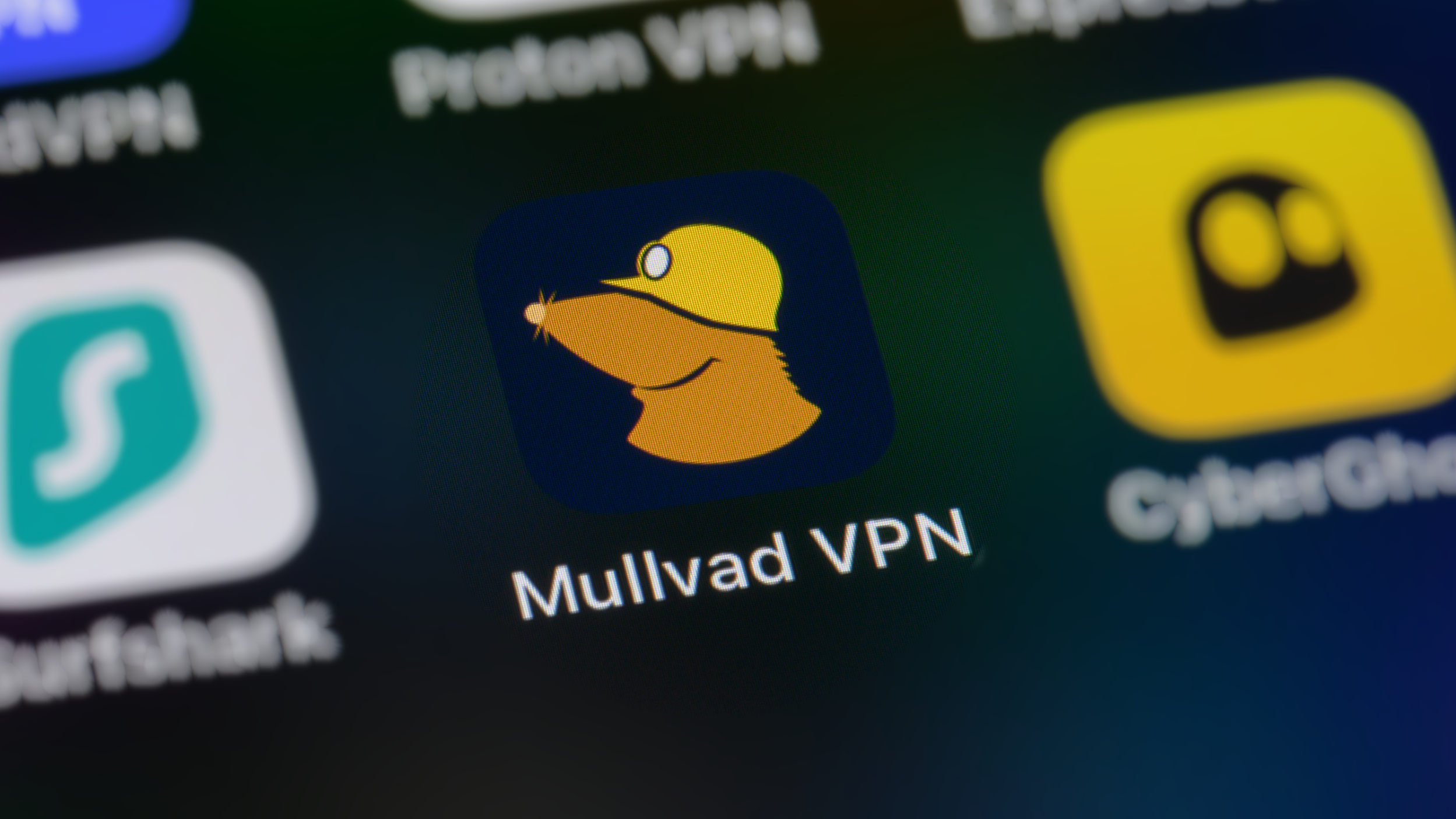Mullvad is set to remove support for OpenVPN in six months – here's why

Sign up for breaking news, reviews, opinion, top tech deals, and more.
You are now subscribed
Your newsletter sign-up was successful
- Mullvad will remove OpenVPN support from January 15, 2026
- The move comes as the VPN provider looks to prioritize WireGuard
- Mullvad has also announced the arrival of in-app updates for Windows and Mac
Mullvad, the Sweden-based VPN provider known for its strong privacy focus and flat-rate pricing, will soon be removing OpenVPN support in favor of WireGuard.
The change will take effect on January 15, 2026, providing existing Mullvad subscribers with time to make the switch before OpenVPN servers and support are removed.
Already the default protocol for all Mullvad apps, WireGuard is employed by many of the best VPN services on the market.
Reminder about removing OpenVPN: we are removing support for OpenVPN entirely on 15th January 2026, in six months time.OpenVPN servers will be completely removed on this date, and support for it within our app will disappear.Please reconfigure your configurations to use…August 18, 2025
"We are removing support for OpenVPN entirely on 15th January 2026, in six months time. OpenVPN servers will be completely removed on this date, and support for it within our app will disappear," wrote the provider in an announcement shared on X.
With Mullvad’s Android and iOS apps already supporting WireGuard exclusively, the transition only impacts desktop users who will receive reminders within Mullvad’s Windows, Mac, and Linux apps.
Mullvad has reminded subscribers to adjust existing OpenVPN configurations to avoid potential interruptions to the service.
Although the news may come as a surprise, Mullvad co-founder Fredrik Strömberg wrote that "WireGuard is the future" as early as 2017.
Why WireGuard?

A VPN protocol is a set of rules and algorithms that dictate how your device encrypts, tunnels, and transports internet traffic through a VPN server.
WireGuard, a newer VPN protocol first launched in 2016, has been adopted by major VPN providers including Surfshark, IPVanish, and Proton VPN. NordLynx, the proprietary protocol of NordVPN, uses a custom implementation of WireGuard.
Mullvad’s decision to drop OpenVPN marks a significant shift, as most VPN providers still offer multiple protocols for flexibility across networks and devices. As Jan Jonsson, Mullvad CEO, told TechRadar’s Chiara Castro in November 2024, less than 7% of Mullvad users are using OpenVPN.
“By moving to a single protocol, we will be able to focus our resources where they can make a difference”, said Mullvad in a November 2024 blog post.
WireGuard has just 4,000 lines of code, compared to more than 70,000 lines for OpenVPN. Mullvad has praised WireGuard’s simple design, which, aside from making for easier integration of new features, allows for faster speeds. This doesn’t come at the cost of security either, with Mullvad citing WireGuard’s “state-of-the-art cryptography.”
Such is its belief in WireGuard, Mullvad made “a sizable donation” in 2017 to support the open-source protocol’s development. To make things easier for subscribers looking to make the switch, Mullvad’s website provides guides on how to use WireGuard.
Keeping up with Mullvad’s updates is now easier than ever
Mullvad’s decision to retire OpenVPN and fully focus on WireGuard isn’t its only recent change. The VPN provider has also announced in-app updates for desktop.
Instead of having to visit Mullvad’s website to download and install the latest updates, Windows and macOS users can now view and download them directly within the app, making it quicker and easier than ever to stay up-to-date.
Mullvad states that Linux users can also benefit from automatic updates via its Linux app repositories and provides instructions to make the process more straightforward.
You might also like

Mark is a Tech Security Writer for TechRadar and has been published on Comparitech and IGN. He graduated with a degree in English and Journalism from the University of Lincoln and spent several years teaching English as a foreign language in Spain. The Facebook-Cambridge Analytica data scandal sparked Mark’s interest in online privacy, leading him to write hundreds of articles on VPNs, antivirus software, password managers, and other cybersecurity topics. He recently completed the Google Cybersecurity Certificate, and when he's not studying for the CompTIA Security+ exam, Mark can be found agonizing over his fantasy football team selections, watching the Detroit Lions, and battling bugs and bots in Helldivers 2.
You must confirm your public display name before commenting
Please logout and then login again, you will then be prompted to enter your display name.